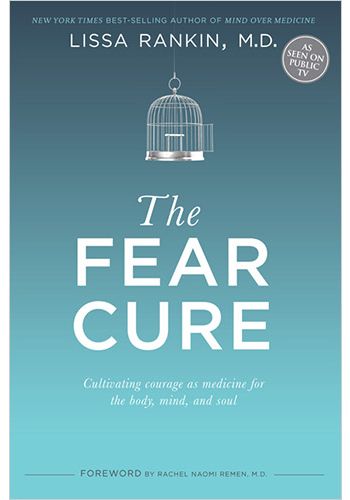The ground of fearlessness, says Chögyam Trungpa Rinpoche, is renouncing hard-heartedness and allowing ourselves to be tender, sad, and fully present.
YOU MIGHT ALSO LIKE
CLEAR ALL
BY TOPIC
BY TEACHER
BY TYPE
FILTER

TOPIC
- Courage (68)
- Anxiety (41)
- Depression (28)
- Honoring Emotion (28)
- Neuroscience (20)
- Stress Management (20)
- Building Character (19)
- Self-Care (18)
- Athlete Well-Being (17)
- Resilience (16)
- Cancer (15)
- Vulnerability (14)
- Authenticity (13)
- BIPOC Well-Being (13)
- Habit Formation (13)
- Mindfulness (13)
- Parenting (13)
- Self-Discovery (13)
- Self-Reflection Practices (13)
- Stress (13)
- Emotional Intelligence (EQ) (12)
- Positive Thinking (12)
- Shame (12)
- Trauma Healing (12)
- Well-Being (12)
- Anger (11)
- Brain Health (11)
- Communication Skills (11)
- Life Challenges (11)
- Self-Healing (11)
- Awareness (10)
- Black Well-Being (10)
- Child’s Emotional Growth (10)
- Self-Esteem (10)
- Activism/Service (9)
- Criticism and Rejection (9)
- Goal Setting (9)
- Negative Self-Talk (9)
- PTSD (9)
- Relationship Challenges (9)
- Self-Limiting Beliefs (9)
- Suicide (9)
- Chronic Anxiety (8)
- Confidence (8)
- Failure (8)
- Mental Health Challenges (8)
- Mind-Body Connection (8)
- Physical Health (8)
- Search for Purpose (8)
- Self-Worth (8)
- Setting Limits and Boundaries (8)
- Women’s Well-Being (8)
- Addiction (7)
- Children’s Well-Being (7)
- Community Healing (7)
- Empowerment (7)
- Entrepreneurship (7)
- Grief (7)
- Imagination and Creativity (7)
- Inner Peace (7)
- Meditation (7)
- Mindfulness Practices (7)
- Motivation (7)
- Presence (7)
- Self-Acceptance (7)
- Self-Compassion (7)
- Self-Development (7)
- Self-Mastery (7)
- Compassion (6)
- Female Empowerment (6)
- Finding Meaning (6)
- Leadership (6)
- Neuroplasticity (6)
- Peak Performance (6)
- Psychology (6)
- Self-Pressure (6)
- Transformation (6)
- ADD/ADHD (5)
- Anger Management (5)
- Endurance (5)
- Freedom (5)
- Habits of Mind (5)
- Happiness (5)
- Human Potential (5)
- Memoir (5)
- Performance Anxiety (5)
- Racial Healing (5)
- Self-Realization (5)
- Social Justice (5)
- Speaking Your Truth (5)
- Trauma (5)
- Trust (5)
- Young Adult Well-Being (5)
- Addiction Recovery (4)
- Asking for Help (4)
- Breathwork (4)
- Disconnection (4)
- Dysfunctional Childhood (4)
- Eating Disorders (4)
- Facing Own Death (4)
- Faith (4)
- Fellowship and Community (4)
- Gratitude (4)
- Growth Mindset (4)
- Identity (4)
- Inner Strengths (4)
- Integrity (4)
- Intention (4)
- Journaling (4)
- Joy (4)
- Kindness (4)
- Letting Go (4)
- Neurodiversity (4)
- Neuropsychology (4)
- Offering Support to Others (4)
- Positive Self-Talk (4)
- Self-Love (4)
- Social Anxiety (4)
- Spiritual Awakening (4)
- Spiritual Growth (4)
- Suffering (4)
- Values (4)
- Veteran Well-Being (4)
- Adaptability (3)
- Belonging (3)
- Child’s ADD/ADHD (3)
- Chronic Pain (3)
- Clinical Depression (3)
- Cognitive Behavioral Therapy (3)
- Connection (3)
- Connection with Nature (3)
- Creative Well-Being (3)
- Curiosity (3)
- Decision Making (3)
- Doubt (3)
- Focus (3)
- Forgiveness (3)
- Global Challenges (3)
- Guilt (3)
- Humility (3)
- Inner Life (3)
- Intuition (3)
- Living with Illness (3)
- Military to Civilian Re-entry (3)
- Mindfulness Meditation (3)
- Moral Philosophy (3)
- Panic Attacks (3)
- Performance Pressure (3)
- Positive Psychology (3)
- Racial Justice (3)
- Racism (3)
- Self-Expression (3)
- Self-Reckoning (3)
- Self-Reliance (3)
- Social Responsibility (3)
- Visualization (3)
- Work Challenges (3)
- Acceptance (2)
- Accepting Love (2)
- Alcohol Addiction (2)
- Attachment Theory (2)
- Autoimmune Disease (2)
- Biofeedback (2)
- Body Image (2)
- Body Positivity (2)
- Buddhism (2)
- Child’s Anxiety (2)
- Child’s Trauma (2)
- Chronic Health Conditions (2)
- Collective Trauma (2)
- Conflict Resolution (2)
- Cross-Cultural Dynamics (2)
- Despair (2)
- Diet and Nutrition (2)
- Divorce and Breakup (2)
- Ego (2)
- Empathy (2)
- Enlightenment (2)
- Exercise (2)
- Family Dynamics (2)
- Fiction (2)
- Forest Bathing (2)
- Generosity (2)
- Guided Meditation (2)
- Healthy Eating (2)
- Higher Calling (2)
- Holism (2)
- Hope (2)
- Hypnosis (2)
- Integrative Medicine (2)
- Intergenerational Trauma (2)
- LGBTQIA Well-Being (2)
- Loneliness (2)
- Love (2)
- Mentoring (2)
- OCD (2)
- Optimism (2)
- Othering (2)
- Patience (2)
- Poetry (2)
- Race and Gender (2)
- Racial Discrimination (2)
- Racial Identity (2)
- Romantic Relationships (2)
- Self-Actualization (2)
- Self-Control (2)
- Shadow (2)
- Situational Depression (2)
- Spiritual Practices (2)
- Spirituality and Politics (2)
- Stoicism (2)
- Storytelling (2)
- Toxic Relationships (2)
- Transitions (2)
- Yoga (2)
- AAPI Well-Being (1)
- Abandonment (1)
- Academic Struggles (1)
- Access to Education (1)
- Acupressure (1)
- Affirmations (1)
- Aging (1)
- Art Therapy (1)
- Autism (1)
- Awe (1)
- Building Culture (1)
- Burnout (1)
- Cannabis/CBD (1)
- Caregiver Well-Being (1)
- Child’s Autism (1)
- Child’s Challenging Behavior (1)
- Codependency (1)
- Collaboration (1)
- Comparing Belief Traditions (1)
- Compassion Fatigue (1)
- Competition (1)
- Dark Night of the Soul (1)
- Death and Dying (1)
- Disabled Well-Being (1)
- Domestic Abuse (1)
- Ego Transcendence (1)
- Energy Healing (1)
- Environmental Justice (1)
- Existentialism (1)
- Friendship (1)
- Genetics (1)
- God (1)
- Goddess (1)
- Handling a Child’s Illness (1)
- Handling a Loved One’s Illness (1)
- Healing Approaches (1)
- Heartmath (1)
- Hero’s Journey (1)
- Highly Sensitive People (1)
- Inner Child (1)
- Inspiration (1)
- Interdependence (1)
- Jealousy/Envy (1)
- Judaism (1)
- Kids and Sports (1)
- Latinx Well-Being (1)
- LGBTQIA Children (1)
- Living as an Empath (1)
- Longevity (1)
- Mantra Meditation (1)
- Masculine/Feminine Dynamics (1)
- Memory (1)
- Motherhood (1)
- Narcissism (1)
- Native American Beliefs (1)
- Neuro-Linguistic Programming (1)
- Nutritional Medicine (1)
- Oneness (1)
- Personality Disorders (1)
- Pleasing Parents (1)
- Post-Traumatic Growth (1)
- Prayer (1)
- Pregnancy and Childbirth (1)
- Problem Solving (1)
- Psychoanalysis (1)
- Raising Daughters (1)
- Regret (1)
- Rest (1)
- Science and Spirituality (1)
- Sexuality (1)
- Sleep (1)
- Social Psychology (1)
- Somatic Practices (1)
- Soul Mission (1)
- Spiritual Direction (1)
- Spiritual Life (1)
- Spirituality and Health (1)
- The Divine (1)
- Tibetan Buddhism (1)
- Unity (1)
- Vitamin Supplementation (1)
- War (1)
- Willpower (1)
- Women’s Rights (1)
- Work Relationships (1)
- Work-Life Balance (1)
- Youth Activism (1)
- Zen Buddhism (1)
FILTER

TEACHER
- Lisa Feldman Barrett (5)
- Harriet Lerner (4)
- Pema Chödrön (4)
- Gabor Maté (3)
- Jeff Foster (3)
- Karla McLaren (3)
- Marie Forleo (3)
- Andrew Solomon (2)
- Daniel Amen (2)
- Daniel J. Siegel (2)
- Elizabeth Gilbert (2)
- Gavin de Becker (2)
- J. Krishnamurti (2)
- John Sarno (2)
- Judith Orloff (2)
- Leah Guy (2)
- Martha Beck (2)
- Maya Angelou (2)
- Neale Donald Walsch (2)
- Paulo Coelho (2)
- Ram Dass (2)
- Rick Hanson (2)
- Tara Brach (2)
- Terri Cole (2)
- Adyashanti (1)
- Alain de Botton (1)
- Albert Camus (1)
- Amishi Jha (1)
- Andrew Holecek (1)
- Andrew Weil (1)
- Andy Puddicombe (1)
- Angela Duckworth (1)
- Arianna Huffington (1)
- Bessel van der Kolk (1)
- Biet Simkin (1)
- Blaise Aguirre (1)
- Brendon Burchard (1)
- Brian Tracy (1)
- Chalene Johnson (1)
- Chip Conley (1)
- Connie Zweig (1)
- Daniel Goleman (1)
- David Perlmutter (1)
- Debbie Ford (1)
- Dorothy Day (1)
- Elaine Aron (1)
- Elizabeth Lesser (1)
- Gary Zukav (1)
- Gay Hendricks (1)
- Gerald Jampolsky (1)
- Gordon Neufeld (1)
- Hyla Cass (1)
- Iskra Lawrence (1)
- James Doty (1)
- James Hillman (1)
- Jan Willis (1)
- Jana Long (1)
- Jay Shetty (1)
- Joan Chittister (1)
- Joan Halifax (1)
- John Bradshaw (1)
- Joseph M. Marshall III (1)
- Kareem Abdul-Jabbar (1)
- Kristin Neff (1)
- Lindo Bacon (1)
- Lisa Wimberger (1)
- Lise Van Susteren (1)
- Lissa Rankin (1)
- Lodro Rinzler (1)
- Lori Gottlieb (1)
- Malala Yousafzai (1)
- Martin Seligman (1)
- Mel Robbins (1)
- Michael A. Singer (1)
- Mihály Csíkszentmihályi (1)
- Mooji (1)
- Nelson Mandela (1)
- Nicole LePera (1)
- Ondrea Levine (1)
- Osho (1)
- Panache Desai (1)
- Paramahansa Yogananda (1)
- Poppy Jamie (1)
- Ralph De La Rosa (1)
- Rebecca Solnit (1)
- Riane Eisler (1)
- Richard Bandler (1)
- Ruby Wax (1)
- Sadhguru (1)
- Serena Williams (1)
- Simone Biles (1)
- Stephanie Y. Evans (1)
- Stephen Levine (1)
- Susan Piver (1)
- Tara Mohr (1)
- The Dalai Lama (1)
- Thich Nhat Hanh (1)
- Tony Gaskins Jr. (1)
- William Bloom (1)
- Zalman Schachter-Shalomi (1)



 Avoidance will make you feel less vulnerable in the short run, but it will never make you less afraid.
Avoidance will make you feel less vulnerable in the short run, but it will never make you less afraid.





